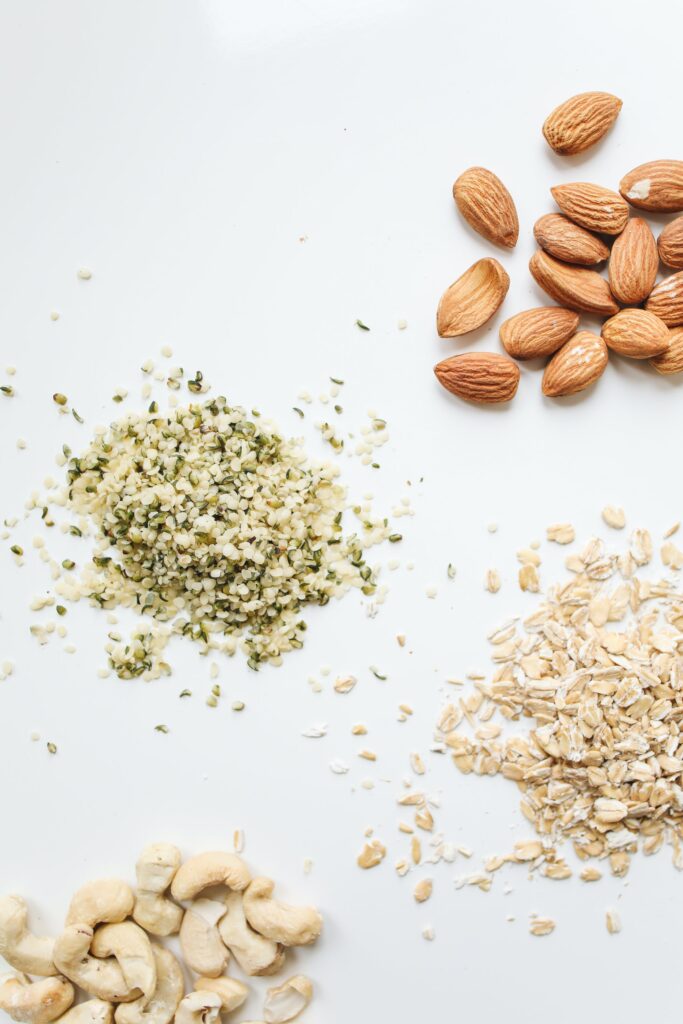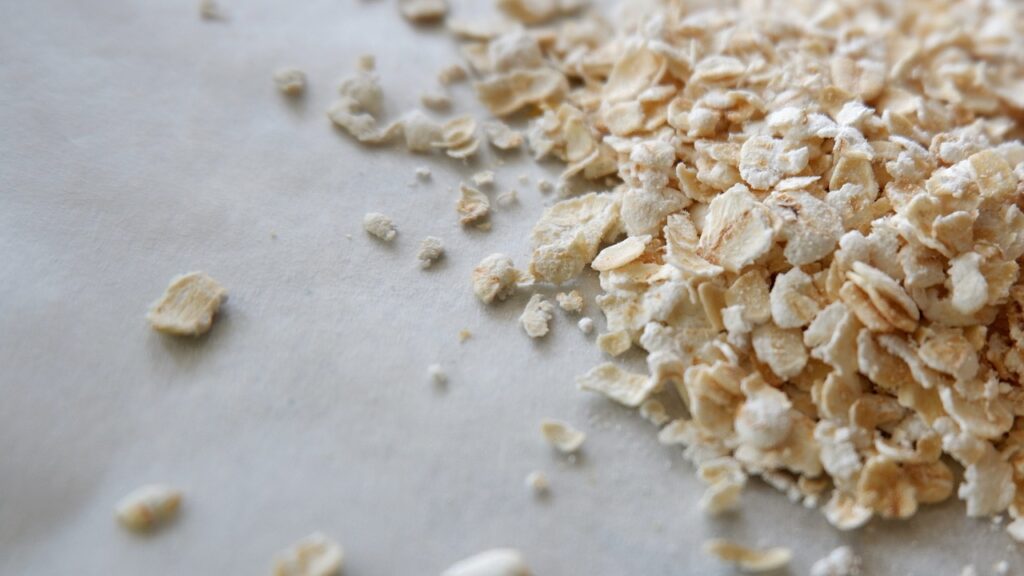Introduction
Oatmeal is a staple breakfast food, known for its health benefits and ease of preparation. However, for individuals with Irritable Bowel Syndrome (IBS), finding foods that alleviate symptoms can be challenging. Oatmeal, in particular, has been praised for its ability to soothe the irritated intestines and relieve pain and discomfort. In this blog, we will explore the relationship between oatmeal and IBS, and how it can affect IBS symptoms in children.


Overview Of Oatmeal And IBS
Research has shown that consuming oatmeal regularly can help with IBS symptoms due to its anti-inflammatory properties. Oatmeal contains a type of soluble fiber called beta-glucan, which decreases inflammation in the intestines and promotes healthy bowel movements. Additionally, oatmeal is a source of resistant starch, a type of carbohydrate that is not fully digested in the small intestine and travels to the colon where it is fermented by gut bacteria. This fermentation process produces short-chain fatty acids, which can improve gut health and reduce inflammation.
However, it is important to note that not all oat products are created equal. Oats are whole grains, while oatmeal is made from ground oats. Porridge, on the other hand, is made by cooking oatmeal with water or milk, resulting in a warm, comforting dish. When choosing oat products for individuals with IBS, it is important to opt for products made from whole-grain oats, as they contain more fiber and have a lower glycemic index compared to processed oat products.
How Do Porridge Oats Affect IBS Symptoms?
Porridge oats, when prepared correctly, can be an excellent option for individuals with IBS. The slow-cooking process breaks down the beta-glucan and resistant starch in oats, making them easier to digest. Furthermore, the addition of liquid in porridge increases the water content of the dish, which can help with constipation and promote healthy bowel movements.
In comparison to other breakfast options, porridge oats are a low FODMAP (fermentable oligosaccharides, disaccharides, monosaccharides, and polyols) food, making them a safer option for individuals with IBS who are following a low FODMAP diet. However, it is important to note that some individuals with IBS may still experience symptoms when consuming porridge oats, as every person’s digestive system is different. It is important to monitor how your body responds to different foods and make adjustments accordingly.
In conclusion, oatmeal and porridge oats can be a beneficial option for individuals with IBS due to its anti-inflammatory properties and ability to promote healthy gut bacteria. However, it is important to opt for whole-grain oats and monitor how your body responds to different oat products to determine the best option for your individual needs.
Understanding IBS
What Is Irritable Bowel Syndrome?
Irritable Bowel Syndrome (IBS) is a chronic digestive disorder that affects the large intestine. It is characterized by symptoms such as abdominal pain, bloating, gas, and changes in bowel habits, including diarrhea, constipation, or alternating episodes.
Common Symptoms Of IBS
The symptoms of IBS can vary depending on the individual, but the most common symptoms include abdominal pain, bloating, gas, and changes in bowel habits. Some individuals may experience diarrhea, constipation, or alternating episodes. In addition to digestive symptoms, IBS can also cause fatigue, headaches, and anxiety.
Oatmeal And IBS
Oatmeal is known for its health benefits and ease of preparation. Research has shown that consuming oatmeal regularly can help with IBS symptoms due to its anti-inflammatory properties. Oatmeal contains a type of soluble fiber called beta-glucan, which decreases inflammation in the intestines and promotes healthy bowel movements. Additionally, oatmeal is a source of resistant starch, a type of carbohydrate that is not fully digested in the small intestine and travels to the colon where it is fermented by gut bacteria.
However, individuals with IBS should opt for whole-grain oats instead of processed oats. Porridge oats, when prepared correctly, can be an excellent option for individuals with IBS. The slow-cooking process breaks down the beta-glucan and resistant starch in oats, making them easier to digest. Furthermore, the addition of liquid in porridge increases the water content of the dish, which can help with constipation and promote healthy bowel movements.


In comparison to other breakfast options, porridge oats are a low FODMAP food, making them a safer option for individuals with IBS who are following a low FODMAP diet. However, it is important to monitor how the body responds to different foods and make adjustments accordingly as every person’s digestive system is different.
In conclusion, oatmeal and porridge oats can be a beneficial option for individuals with IBS due to its anti-inflammatory properties and ability to promote healthy gut bacteria. However, it is important to opt for whole-grain oats and monitor how the body responds to different oat products to determine the best option for individual needs.
How Oatmeal Helps With IBS
The Benefits Of Soluble Fiber
Oatmeal is a great source of soluble fiber, specifically beta-glucan. This type of fiber adds bulk to stool, which can help regulate bowel movements. Beta-glucan can also absorb excess water in the digestive tract, leading to firmer stools and potentially reducing the frequency of diarrhea. Incorporating whole-grain oats into the diet can be a supportive strategy for managing IBS-related diarrhea and constipation.
Oatmeal’s Role In Reducing IBS Symptoms
Research has shown that consuming oatmeal regularly can help with IBS symptoms due to its anti-inflammatory properties. Oatmeal contains anti-inflammatory compounds that decrease inflammation in the intestines and promote healthy bowel movements. Additionally, oatmeal is a source of resistant starch which helps to maintain healthy gut bacteria.
Porridge oats, when prepared without added sugars and artificial sweeteners, can be a healthy and safe option for individuals with IBS. However, it is important to monitor how the body responds to different oat products to determine the best option for individual needs. Also, individuals with IBS should choose whole-grain oats over processed oats.
In comparison to other breakfast options, porridge oats are low in FODMAPs, making them a safer option for individuals with IBS who are following a low FODMAP diet. However, it is essential to adhere to an individualized dietary approach that considers all the person’s needs when managing IBS symptoms.
In summation, oatmeal and porridge have excellent properties that make them an ideal breakfast option for individuals with IBS. They help in regulating bowel movements, provide essential fiber, have anti-inflammatory compounds, and aid in maintaining healthy gut bacteria. However, individuals with IBS should monitor the body’s response to different oat products and work with a registered dietitian to develop an individualized dietary approach that will meet their nutritional needs.
How To Incorporate Oatmeal Into Your Diet
Best Ways To Prepare And Eat Oatmeal
Oatmeal is a great option to incorporate into your diet if you have IBS. To make the most out of its benefits, it is important to prepare and eat it correctly. Here are some tips:
- Choose whole-grain oats over processed oats. Whole oats contain more fiber and nutrients than processed oats.
- Avoid adding high FODMAP ingredients such as honey or apples to your oatmeal. Instead, try adding low FODMAP fruits such as blueberries or bananas.
- If you are sensitive to the texture of oatmeal, try blending it into a smoothie or baking it into muffins or granola bars.
- Be mindful of portion sizes. Eating too much oatmeal can lead to uncomfortable digestive symptoms.
- Experiment with different types of oats such as steel-cut, rolled, or quick oats until you find what works best for you.
Alternatives To Oatmeal For Those With Gluten Sensitivities
If you are sensitive to gluten, there are still plenty of options to choose from that can provide the same nutrients and benefits. Here are some alternatives:
- Quinoa flakes: high in fiber and protein, quinoa flakes can be used in place of oatmeal in many recipes.
- Buckwheat groats: these can be made into groats or porridge and contain resistant starch which is good for gut health.
- Amaranth: this gluten-free grain can be cooked similarly to rice and contains magnesium, iron, and protein.
- Chia seeds: these can be soaked in liquid overnight to create a pudding-like consistency or added to smoothies for extra fiber and nutrients.
Remember, always listen to your body and consult with a registered dietitian to create an individualized dietary approach that meets your nutritional needs. Incorporating oatmeal or its alternatives into your diet can be a great way to manage your IBS symptoms and promote gut health.
Risks And Considerations
Potential Downsides Of Consuming Oatmeal For Those With IBS
While oatmeal can provide many benefits for gut health and managing IBS symptoms, there are some potential downsides for those with certain sensitivities or intolerances. These include:
- Gluten sensitivity or celiac disease: While oats themselves do not contain gluten, cross-contamination can occur during processing and manufacturing. It is important to choose certified gluten-free oats if you have gluten sensitivity or celiac disease.
- Fiber sensitivity: The high fiber content in oatmeal can cause discomfort for those with fiber sensitivity or slow transit time (constipation). It is important to start with small portions and gradually increase as tolerated.
- Sugar sensitivity: Some types of flavored instant oatmeal can contain high amounts of added sugar, which can be problematic for those with sugar sensitivity or diabetes.
When To Consult A Healthcare Professional
While incorporating oatmeal into your diet can be a great way to manage IBS symptoms, it is important to consult with a healthcare professional before making any significant dietary changes. This is particularly important if you have any underlying health conditions or are taking medications that could interact with certain foods. A registered dietitian can also help you create an individualized meal plan that meets your nutritional needs while managing your IBS symptoms.


In summary, oatmeal can provide many benefits for those with IBS, but it is important to choose the right type, prepare it correctly, and be mindful of portion sizes. It is also important to consult with a healthcare professional before making any significant dietary changes.
Other Foods To Include In An Ibs-friendly Diet
Foods High In Soluble And Insoluble Fiber
Apart from oatmeal, there are other foods that are high in soluble and insoluble fiber that can benefit those with IBS. Soluble fiber can help regulate bowel movements and reduce diarrhea in individuals with IBS. Good sources of soluble fiber include flaxseeds, chia seeds, psyllium husk, and certain fruits and vegetables such as bananas, apples, and carrots. On the other hand, insoluble fiber helps add bulk to stool and can help prevent constipation. Good sources of insoluble fiber include whole-grain bread and cereals, nuts, seeds, and the skin of fruits and vegetables.
Probiotic-rich Foods
Probiotics are beneficial bacteria that can improve gut health and reduce IBS symptoms. Yogurt, kefir, sauerkraut, kimchi, and miso are just a few examples of probiotic-rich foods that can be included in an IBS-friendly diet. These foods contain natural probiotics that can help restore the balance of gut bacteria.
Additionally, lean proteins such as chicken, turkey, fish, and tofu can be added to the diet as well. These protein sources are generally well-tolerated and provide essential nutrients without exacerbating IBS symptoms. Omega-3 fatty acids, found in sources such as fatty fish and walnuts, have anti-inflammatory properties that can help reduce inflammation in the gut.
As with any dietary changes, it is important to consult with a healthcare professional before making significant changes to an IBS-friendly diet. A registered dietitian can help in creating a meal plan that meets nutritional needs while managing IBS symptoms. By incorporating a variety of high fiber foods, probiotic-rich foods, and lean proteins into an IBS-friendly diet, individuals may be able to manage their symptoms and improve their overall gut health.
Lifestyle Changes For IBS Management
Individuals with irritable bowel syndrome (IBS) may manage their symptoms through diet and lifestyle changes, which can improve their overall well-being. Making dietary changes such as increasing fiber intake and avoiding certain foods can help reduce IBS symptoms. Apart from the dietary changes mentioned earlier, there are other foods that those with IBS can consider including in their diet.
Foods High In Soluble And Insoluble Fiber
In addition to oatmeal, individuals with IBS can incorporate other foods that are high in soluble and insoluble fiber into their diet. Soluble fiber can help regulate bowel movements and reduce diarrhea in those with IBS. Good sources of soluble fiber include flaxseeds, chia seeds, psyllium husk, as well as certain fruits and vegetables such as bananas, apples, and carrots. Insoluble fiber, on the other hand, helps add bulk to stool and can help prevent constipation. Good sources of insoluble fiber include whole-grain bread and cereals, nuts, seeds, and the skin of fruits and vegetables.
Probiotic-rich Foods
Probiotics are beneficial bacteria that can improve gut health and reduce IBS symptoms. Probiotic-rich foods such as yogurt, kefir, sauerkraut, kimchi, and miso can be included in an IBS-friendly diet. These foods contain natural probiotics that can help restore the balance of gut bacteria.
Lean proteins such as chicken, turkey, fish, and tofu can also be added to an IBS-friendly diet as they are generally well-tolerated and provide essential nutrients without exacerbating IBS symptoms. Omega-3 fatty acids, found in fatty fish and walnuts, have anti-inflammatory properties that can help reduce inflammation in the gut.


Apart from dietary changes, individuals may manage their IBS symptoms by making lifestyle changes. Two important ways to manage IBS symptoms through lifestyle changes are by reducing stress and increasing physical activity.
Stress Management Techniques
Stress is known to be a trigger for IBS symptoms. Therefore, individuals with IBS should manage their stress levels. Deep breathing and relaxation techniques, meditation, and yoga are some techniques that can be used to manage stress. Additionally, talking with a therapist or joining an IBS support group to meet others on a similar journey can also help manage stress levels.
Exercise And Physical Activity
Exercise and physical activity can help alleviate symptoms associated with constipation in those with IBS. Including moderate-intensity activities such as walking, cycling, swimming, or yoga can also help improve symptoms while providing other physical health benefits.
In conclusion, dietary and lifestyle changes can significantly improve IBS symptoms. Individuals should consult with a healthcare professional before making significant changes to an IBS-friendly diet or exercise plan. By incorporating a variety of high fiber foods, probiotic-rich foods, and lean proteins along with stress management techniques and regular exercise, individuals may be able to manage their symptoms and improve their overall well-being.
Frequently Asked Questions
Answers To Common Questions About Oatmeal And IBS
Individuals with irritable bowel syndrome (IBS) often wonder if they can eat oatmeal without experiencing symptoms. The quick answer is yes, oatmeal is generally well-tolerated by most people with IBS. However, the answer depends on various factors such as the amount consumed, method of preparation, and the individual’s IBS diagnosis. Here are some commonly asked questions about oatmeal and IBS:
Is Oatmeal Low FODMAP?
Oatmeal can be low FODMAP depending on the serving size. A half-cup serving of rolled oats or quick oats is considered low FODMAP, while a full cup is high FODMAP. Therefore, it is essential to keep serving sizes in mind when incorporating oatmeal into a low FODMAP diet.
Can Oatmeal Exacerbate Diarrhea And Other IBS Symptoms?
If consumed in large amounts or not prepared correctly, oatmeal can potentially exacerbate diarrhea in people with IBS. However, people usually tolerate oats well, and oatmeal prepared with water or lactose-free milk is less likely to cause flare-ups. Adding fiber-rich toppings like ground flaxseed or chia seeds can also help regulate bowel movements.
Are There Other Options For Individuals Who Cannot Consume Oatmeal?
For individuals who cannot eat oatmeal due to IBS symptoms, there are other grain options like quinoa or rice flakes that can be prepared similarly to oatmeal. It is always crucial to consult with a healthcare professional before making significant dietary changes, especially if you have a medical condition like IBS.
In summary, oatmeal can be a part of a healthy and IBS-friendly diet, as long as it is consumed in moderation and prepared correctly. Considering individual tolerances and consulting a healthcare professional for personalized advice can help manage IBS symptoms and improve overall well-being.
Final Thoughts And Takeaways
Oatmeal can be a part of a healthy diet for individuals with irritable bowel syndrome (IBS). Its high soluble fiber content can promote overall health and wellbeing by regulating bowel movements and soothing the gut. Beta-glucan, the soluble fiber in oats, can soften the stool, add bulk to it, and help absorb excess water in the digestive tract. This makes oats particularly effective for constipation relief and managing IBS-related diarrhea.
It’s essential to keep serving sizes in mind when incorporating oatmeal into a low FODMAP diet, as a full cup of oats is considered high FODMAP. While people with IBS generally tolerate oats well, it is crucial to prepare them correctly and avoid larger amounts that may exacerbate diarrhea.


Individuals who cannot eat oatmeal due to IBS symptoms can explore other grain options like quinoa or rice flakes, prepared similarly to oatmeal. Consulting a healthcare professional before making significant dietary changes is always crucial, especially for those with medical conditions like IBS.
In conclusion, oatmeal can be a supportive strategy for managing IBS symptoms, as long as it is consumed in moderation and prepared correctly. Considering individual tolerances and seeking personalized advice from a healthcare professional can help manage IBS symptoms and improve overall well-being.
FAQ: Oatmeal and IBS: Soothing Solutions for Digestive Health
Q: Is oatmeal good for those with IBS?
A: Yes, most people with irritable bowel syndrome tolerate oats well. Oatmeal is an excellent source of soluble fiber, which helps to regulate bowel movements and reduce symptoms such as constipation and diarrhea.
Q: How much oatmeal should I eat if I have IBS?
A: The amount of oatmeal you can safely consume depends on your individual gut sensitivity. Start with a small portion, such as half a cup, and slowly increase the amount over time if you tolerate it well.
Q: How should I prepare my oatmeal to avoid triggering IBS symptoms?
A: Choose rolled oats or steel-cut oats as they are less processed and easier to digest. Avoid instant or flavored oatmeal as they often contain additives and artificial sweeteners that can aggravate digestive issues. Cook your oatmeal with water or nut milk instead of dairy milk to avoid lactose, which can cause bloating.
Q: Can oatmeal worsen IBS symptoms?
A: In rare cases, some people with IBS may experience digestive symptoms such as bloating, abdominal pain, or diarrhea after consuming oatmeal. If you notice any adverse effects, stop eating oatmeal and speak with a healthcare professional.
Q: Can adding toppings to oatmeal affect IBS symptoms?
A: Yes, some toppings can worsen IBS symptoms. Avoid high-fat toppings such as creamy peanut butter, chocolate chips, or whipped cream, as well as high-FODMAP ingredients such as honey, agave nectar, and dried fruits. Instead, opt for low-FODMAP options such as fresh berries, banana slices, or a sprinkle of cinnamon.
In conclusion, oatmeal is a nutritious and satisfying food that can provide relief for those with IBS. With careful portion size and preparation, oatmeal can be a soothing solution for digestive health. As with any dietary change, it’s essential to listen to your body and seek medical advice if necessary.



Are you looking for delicious and healthy dessert ideas? Look no further than scrumptioussugarfree.com! The owner and writer of this blog is dedicated to creating mouth-watering desserts without any added sugars. From chocolate cake to fruity sorbets, every recipe is carefully crafted to satisfy your sweet tooth while keeping your health in mind. Follow scrumptioussugarfree.com on social media for daily inspiration, and join the community of health-conscious dessert lovers today!
